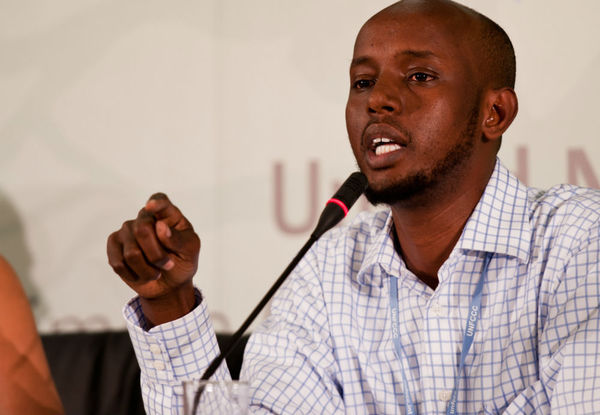Negotiations on a rulebook for the Agreement lurch toward their final act despite developed countries refusing to engage on key issues like climate finance

Nearly 2 ½ years after opening, negotiations on the rulebook for the Paris Agreement enter their final stage as countries agreed a process to condense a 300-page draft into text that can be negotiated later this year in Katowice, Poland.
“We have fortunately avoided scuppering the ship,” said Mohamed Adow, Christian Aid’s International Climate Lead. “Governments have empowered the Co-Chairs to turn the progress made so far into a more solid basis for negotiations in Poland. It is now vital for the Co-Chairs to change the course of the negotiations away from diplomatic doldrums towards a win-win approach and craft middle ground options that the whole world can get on board with at COP24.”
The Co-Chairs will have to remain transparent in their process, ensure an even-handed treatment of the options on the table, and refrain from inserting new language in order to avoid a mutiny later this year. However, larger concerns remain over the role of one country – and one man in particular – in frustrating progress.
“Under Trump the U.S. has set about renegotiating the Paris Agreement to escape its historical responsibility and get better deal for the Big Polluters it serves” saidCorporate Accountability’s media director, Jesse Bragg. “Led by the U.S., developed countries are trying to strip equity from Paris and force false solutions into the heart of the Agreement. But this type of obstruction is nothing new – the U.S. has long watered-down multilateral agreements before walking away all together. If we’re to get what the world needs from Paris, we cannot allow Trump to hold this Agreement hostage.”
Particularly frustrating for developing countries and civil society alike was an apparent refusal by developed countries, led by the U.S., to engage constructively on key discussions about finance issues such as their communication of up-front information, the process to establish a new long-term finance goal, and the replenishment of the Green Climate Fund.
Lidy Nacpil, Coordinator at the Asian Peoples Movement on Debt and Development, warned, “the U.S.’ cancellation of $2 billion of its $3 billion pledge to the Green Climate Fund and obstruction of the Fund’s replenishment – these acts are not only denial of its responsibility for the climate crisis. These acts will bring further harm to our people and communities.”
“The U.S. has announced its withdrawal from the Paris Agreement but still negotiates as if it is a Party, weakening international cooperation by not contributing to finance and technology transfer to developing countries,” said Meena Raman, legal advisor at Third World Network.
“After contributing the most to cause the climate crisis, the U.S. now expects developing countries to clean up the mess with no help whatsoever. This Just Do It Yourself attitude risks infecting the entire process and will hinder the much-needed implementation of the Paris Agreement.”
Harjeet Singh, ActionAid’s Global Lead on Climate Change added, “The Paris Agreement is on the brink. Developed countries are going back on their word and refusing to agree clear rules governing climate finance. If they remain stuck in their positions and fail to loosen their purses, this treaty may collapse.
“We have a mountain to climb before the next climate summit this December. Finance ministers must now step in and deliver on the promises made in Paris.”
“The U.S.’ siren call appears to be working, big polluting countries are falling in behind.” said Rachel Kennerley, International Climate Campaigner at Friends of the Earth England, Wales, and Northern Ireland. “Now Australia is openly talking of scrapping its already weak climate plan and withdrawing from the Paris Agreement. And other low-ambition countries including the U.K. are hiding in the U.S.’ shadow even while claiming to be climate leaders.”
“To be a real climate leader the U.K. and other developed countries need to provide real climate finance and phase out fossil fuels as soon as possible.”
